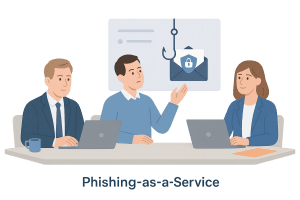Why Reliable IT Support Still Matters in Paramus—and What’s at Risk Without It
Paramus has long been a hub of economic activity in northern New Jersey, best known for its retail presence—but beneath the surface lies a thriving network of law firms, healthcare providers, accountants, and small manufacturers that power the borough’s professional services economy. These firms increasingly depend on technology, yet many operate without structured IT support. The result is a growing vulnerability hiding in plain sight.
From cloud software to email systems, printers to mobile devices, every business in Paramus now relies on a mesh of interconnected digital tools. Yet when something breaks—or worse, when something is breached—far too many companies have no clear point of contact or plan. In 2025, that’s not just inefficient. It’s dangerous.
The Problem With “Good Enough” IT
It’s easy to believe everything is fine until it isn’t. A password stops working. A file won’t open. A laptop starts rebooting. In isolation, these may seem like harmless annoyances. But they’re often early indicators of systemic risk—risks that, left unchecked, can spiral into hours of downtime or thousands of dollars in losses.
Consider the case of a small real estate firm in Paramus whose cloud file system stopped syncing. For three days, employees worked on outdated documents without realizing it. A simple configuration error became a legal and financial liability. No cyberattack was necessary—only the absence of support.
Support That Prevents Downtime
Modern IT support isn’t just a help desk—it’s a full-spectrum strategy that blends monitoring, automation, and human expertise. At Cost+, our Support+ service is designed to detect, diagnose, and resolve issues before they become business interruptions.
Support+ includes:
- 24/7 remote monitoring of workstations, servers, and network devices
- Proactive patch management and update coordination
- Configuration validation across cloud accounts and critical systems
- On-demand technical support by experienced engineers
- Strategic guidance on infrastructure, licenses, and scaling
This isn’t break/fix support. It’s preventative IT care tailored for businesses that can’t afford surprises.
Where Cybersecurity and Support Intersect
IT support and cybersecurity are no longer separate functions. In today’s threat environment, any device or user can be a point of entry—and response times matter. That’s why Support+ integrates advanced endpoint protection using Security+ and EDR (Endpoint Detection and Response).
Unlike legacy antivirus tools, EDR monitors system behavior in real time, isolating suspicious activity, halting lateral movement, and alerting our security team before damage spreads. It’s like having a fire alarm that also puts out the fire.
For businesses in Paramus, where a ransomware event could mean locked files, lost billing data, or HIPAA violations, these protections aren’t luxuries. They’re necessities.
The Cost of Inaction
Downtime costs aren’t abstract. A single hour of IT outage can delay patient intake at a clinic, stall closings at a title agency, or prevent vendors from receiving orders. Reputational damage can be worse—especially if sensitive data is leaked or if clients begin to lose trust in your operational reliability.
In some cases, cyber insurance claims are denied when insurers discover there was no active monitoring, no backup strategy, or no evidence of endpoint protections. Businesses that assumed they were covered find themselves holding the full cost of recovery.
What Paramus Businesses Are Asking For
Our clients aren’t asking for more software—they’re asking for stability. They want someone to call when something’s not working, someone to trust when security is at stake, and someone who understands how to keep them moving forward.
We provide that. With Support+, your business has a dedicated team monitoring your systems, answering your calls, and working in the background so you don’t have to think about IT until you want to improve it.
Schedule Your Support+ Checkup
Not sure what’s in place now—or what’s missing? We offer a no-obligation Support+ checkup for Paramus businesses. We’ll review your systems, identify gaps, and make plain-language recommendations tailored to your risk and budget.
Are you searching for Paramus IT Support? Explore our Paramus IT services or schedule your free Support+ review today.
Or speak directly with our Ramsey-based team at 800.840.9690.
